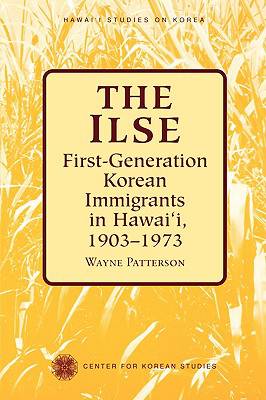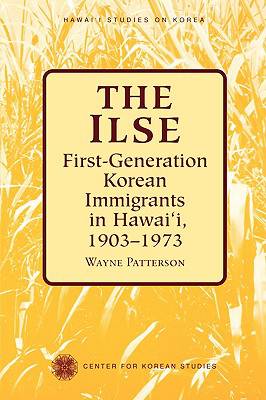
- Retrait gratuit dans votre magasin Club
- 7.000.000 titres dans notre catalogue
- Payer en toute sécurité
- Toujours un magasin près de chez vous
- Retrait gratuit dans votre magasin Club
- 7.000.0000 titres dans notre catalogue
- Payer en toute sécurité
- Toujours un magasin près de chez vous
46,95 €
+ 93 points
Description
On January 13, 1903, the first Korean immigrants arrived in Hawai'i. Numbering a little more than a hundred individuals, this group represented the initial wave of organized Korean immigration to Hawai'i. Over the next two and a half years, nearly 7,500 Koreans would make the long journey eastward across the Pacific. Most were single men contracted to augment (and, in many cases, to offset) the large numbers of existing Chinese and Japanese plantation workers.
Although much has been written about early Chinese and Japanese laborers in Hawai'i, until now no comprehensive work had been published on first-generation Korean immigrants, the ilse. Making extensive use of primary source material from Korea, Japan, the continental U.S., and Hawai'i, Wayne Patterson weaves a compelling social history of the Korean experience in Hawai'i from 1903 to 1973 as seen primarily through the eyes of the ilse. Japanese surveillance records, student journals, and U.S. intelligence reports--many of which were uncovered by the author--provide an "inner history" of the Korean community. Chapter topics include plantation labor, Christian mission work, the move from the plantation to the city, picture prides, relations with the Japanese government, interaction with other ethnic groups, intergenerational conflict, the World War II experience, and the postwar years. The Ilse is an impressive and much-needed contribution to Korean American and Hawai'i history and significantly advances our knowledge of the East Asian immigrant experience in the United States.Spécifications
Parties prenantes
- Auteur(s) :
- Editeur:
Contenu
- Nombre de pages :
- 376
- Langue:
- Anglais
- Collection :
Caractéristiques
- EAN:
- 9780824822415
- Date de parution :
- 01-01-00
- Format:
- Livre broché
- Format numérique:
- Trade paperback (VS)
- Dimensions :
- 158 mm x 235 mm
- Poids :
- 498 g

Les avis
Nous publions uniquement les avis qui respectent les conditions requises. Consultez nos conditions pour les avis.






